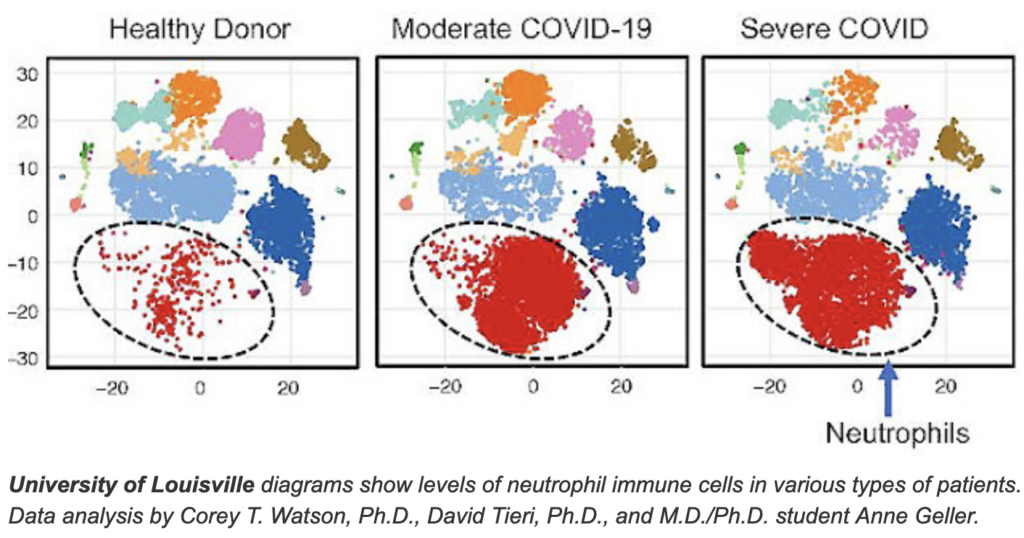University of Louisville gets $6.1 million in federal grants to study possible cause of serious illness and death from Covid-19

By Sarah Ladd
Kentucky Lantern
University of Louisville researchers announced Friday that three federal grants totalling $6.1 million will allow them to further study immune-system dysregulation, which they say causes serious illness and death in some patients who have Covid-19.
The funding from the National Institutes of Health comes after UofL researchers “discovered that a specific type of immune cells, low-density inflammatory neutrophils, became highly elevated in some Covid-19 patients whose condition became very severe,” a university news release said. (Neutrophils are white blood cells in the immune system that play a role in fighting infections). The researchers published those findings in 2021.
“At one time we had over 100 patients with Covid in the hospital. Once they were on a ventilator, mortality was about 50%,” Dr. Jiapeng Huang, an anesthesiologist with UofL Health, professor and vice chair of the Department of Anesthesiology and Perioperative Medicine in the UofL School of Medicine, said in a statement. “We were looking at this issue to see why some people would do well while some developed bad lung disease and did not do well or died.”
Immunologist and lead researcher for the 2021 study, Dr. Jun Yan, said the new federal funding could help with development of a therapy. “That’s why we do this research,” Yan said. “Eventually we want to benefit the patients.”
The funding comes from three grants:
- A four-year $2.9 million grant to UofL. Researchers will use this to better understand acute respiratory distress and work to prevent those complications, UofL said.
- A five-year $2.9 million grant to UofL. Researchers will use this to “characterize different subsets of neutrophils and measure their changes over the course of Covid-19 disease progression.”
- A one-year, $306,000 grant to Degranin Therapeutics and UofL. Researchers will use this to study the effectiveness of a compound to reduce immune dysregulation.
“The knowledge gained through these studies may benefit not only Covid-19 patients, but those with other conditions in which immune dysregulation can occur,” UofL said. Those include “other types of viral and bacterial pneumonia and autoimmune diseases, and patients undergoing cancer immunotherapy and organ transplantation.”